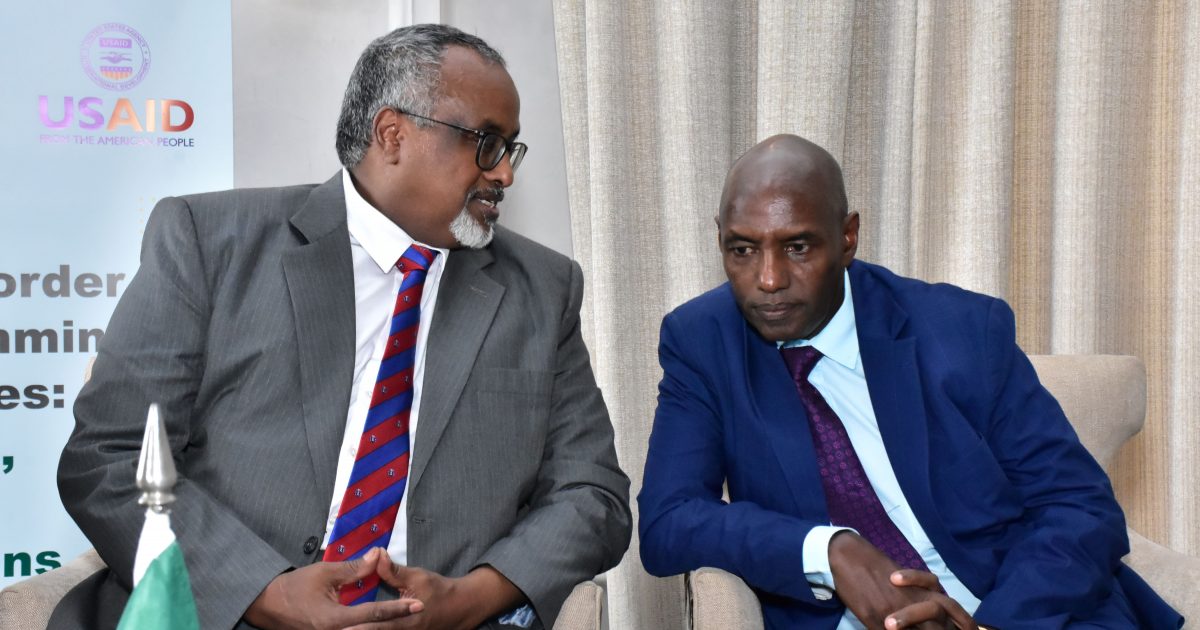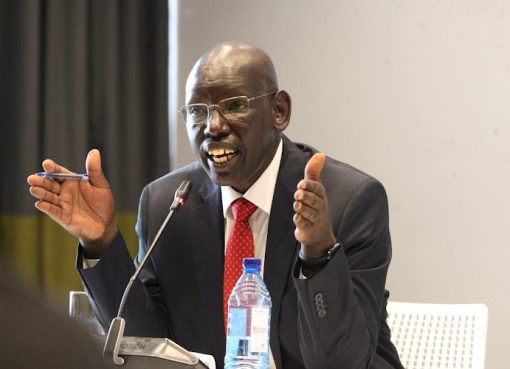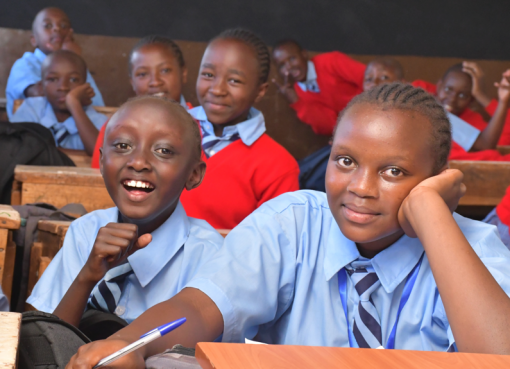The IGAD Centre for Pastoral Areas and Livestock Development (ICPALD) with the support of USAID has held a press briefing to discuss the progress made in the IGAD Drought Disaster Resilience and Sustainability Initiative (IDDRSI) to end drought emergencies.
The discussions also focused on Cross-Border Resilience programming on IGAD’s Karamoja, Moyale and Mandera clusters in the cross-border areas of Uganda, Ethiopia and Kenya.
State Department for the Arid and Semi-Arid Lands (ASALs) and Regional Development Principal Secretary (PS) Kello Harsama said that Kenya and Uganda signed a MoU on September 13, 2019 in Moroto, whose objective is to accord communities on the both sides of the border for better cooperation, peaceful co-existence and bridge isolation gaps.
“The Programme document has been developed and validated by both countries,” he re-affirmed, adding that the Ministry was in the process of reviewing the MoU between Kenya and Ethiopia and initiating the MoU between Kenya -Somalia and Kenya-South Sudan.
Harsama noted that during the last drought, the country lost over 2.5 million livestock hence adversely affecting pastoral livelihoods.
“Consequently, the Ministry in collaboration with county governments and partners has put in place strategies and measures to transform the livestock sector through market development, range management, and feedlot development,” he stated.
The PS mentioned that for effective coordination, a Partnership Coordination Framework (PCF) and Resilience Programming Framework (RPF) for the ASALs has been developed to harmonize programming and enhance synergies for impact.
Speaking at the event, IGAD, Deputy Executive Secretary Mohamed Ware said that resilience was a common thread in the lives and livelihoods of border communities which are often neglected and marginalized by distant capitals and upcountry elites because they are viewed with suspicion and condescension.
Ware noted that border communities were largely pastoralists, and agro pastoralists, depending on increasingly unreliable and erratic rainfall.
“Often victims of the extremes of climate impact, these communities endure cycles of drought and floods, often in the same year, and sometimes several times,” added Ware.
He observed that with limited infrastructure in border areas, humanitarian and relief efforts were often too little and late.
Further, Ware reckoned that borderlands were often hideouts of criminal elements due to inadequate policing and security services hence communities become victims of banditry, livestock rustling, arms trafficking and racketeering.
“The strong arm of the law and periodic incursions of heavily armed security forces are sometimes the only meaningful interaction with government authorities, and they often leave misunderstanding, resentment and hostility behind,” he disclosed.
According to Ware, border communities must be resilient and any assistance to them, be it humanitarian interventions or social development investments, must start with preserving and strengthening their resilience.
He at the same time maintained that communities on the border are vital for individual Member States security since states at the local and national level needed their goodwill, cooperation, and partnership to secure their borders.
“The Project Building Resilience to Food and Nutrition Security in the Horn of Africa (BREFONS) mobilized USD 162 million across five countries, with additional funding from the Green Climate Fund expected to inject USD 151 million, supporting IGAD’s goals for long-term sustainability,” he revealed.
Ware noted that management of river basins that often traverse the border needed to be depoliticized, with the establishment of non-political, technical and competent River Valley Management Authorities that take Rivers’ cyclical impact on border communities.
“I encourage development partners and member states to allocate funding to promote knowledge sharing across all IGAD Clusters,” he asserted, adding that by engaging diverse stakeholders, securing long-term funding and enhancing collaboration among member states and development partners, a resilient and sustainable future can be fostered.
The Deputy Executive Secretary highlighted that IGAD leads and coordinates several platforms, including the IGAD Drought Disaster Resilience and Sustainability Initiative (IDDRSI) and the Greater Horn of Africa Climate Outlook Forum (GHACOF), covering eight IGAD Member States and three additional countries.
Ware pointed out that advancements in technology, such as mobile applications for data collection and GIS mapping, mobile money and banking, access to information through the internet, access to market prices for inputs and farm and livestock products all empower borderland communities in ways unthinkable few years ago.
“With their legendary dynamism, and yes, resilience, I am optimistic about the prospects for the lives and livelihoods of border communities,” he expressed.
By Gathigia Ng’aari





